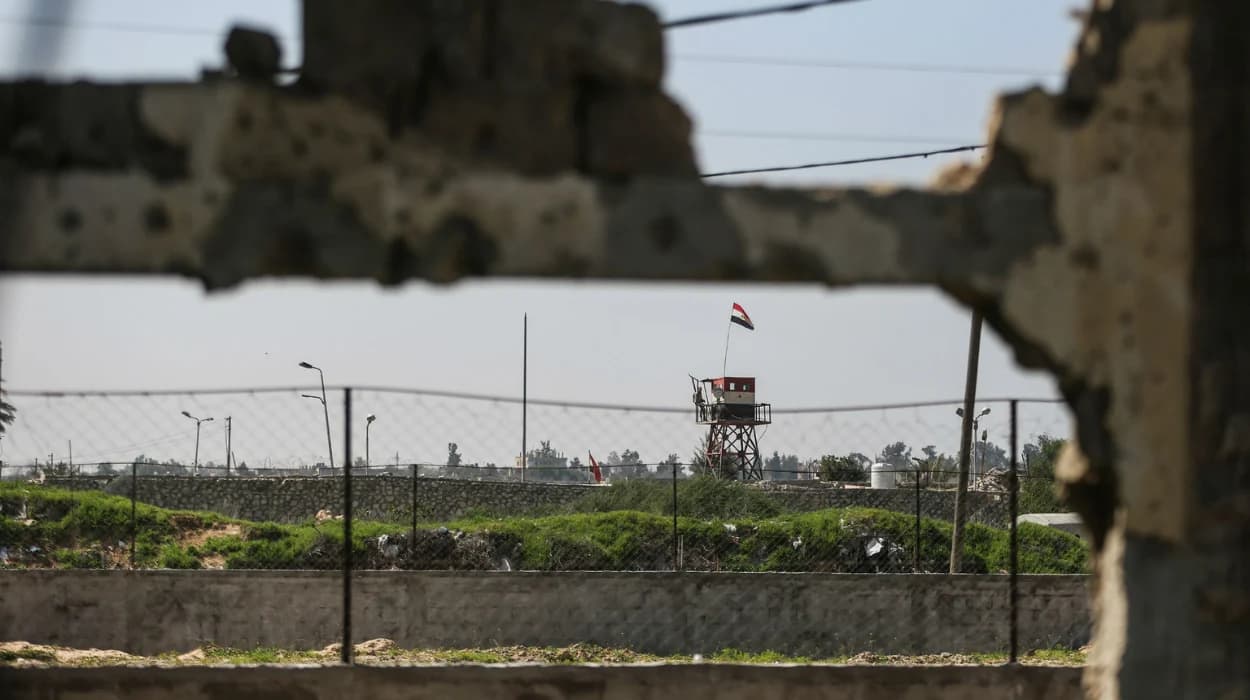Key Points
- Israeli
Prime Minister Benjamin Netanyahu has initiated a controversial plan to
evacuate northern Gaza, raising alarm in Egypt and the international
community.
- The
plan involves the forced displacement of hundreds of thousands of
Palestinians from northern Gaza to the south.
- UN
humanitarian agencies warn of catastrophic consequences, including
worsening conditions in Gaza’s hospitals and critical shortages of fuel
and medical supplies.
- Egypt
expresses deep concern over the humanitarian impact and regional stability
risks posed by the mass displacement.
- The
plan has intensified tensions in the Middle East, with global calls for
restraint and protection of civilian lives.
- Israeli
military operations continue amid the evacuation, further destabilising
the region.
- UN
agencies, including UNHCR, are involved in efforts to assist displaced
families and repair damaged homes in conflict zones.
- The
situation is unfolding amid broader geopolitical tensions involving Iran,
the US, and other regional actors.
What Is Netanyahu's Plan to Empty Northern Gaza?
Israeli Prime Minister Benjamin Netanyahu has launched a
plan to evacuate the northern part of the Gaza Strip, aiming to clear the area
of Palestinian civilians. This initiative is part of Israel’s ongoing military
operations against Hamas, which controls Gaza. The plan involves the forced
displacement of an estimated hundreds of thousands of Palestinians from their
homes in northern Gaza to the southern part of the enclave.
According to reports, this evacuation is seen by many as a
precursor to intensified military action in the north, raising serious
humanitarian concerns. The forced movement of civilians is expected to
exacerbate the already dire conditions in Gaza, where infrastructure and
medical facilities have been severely damaged by ongoing conflict.
Why Is Egypt Alarmed by the Evacuation Plan?
Egypt has voiced strong alarm over Netanyahu’s evacuation
plan, fearing the humanitarian and security implications of a mass displacement
of Palestinians. As Gaza shares a border with Egypt, Cairo is concerned about a
potential influx of refugees and the destabilising effects on the region.
Egyptian officials warn that the displacement could
overwhelm their border facilities and strain resources, while also increasing
tensions with Israel. The Egyptian government has called for urgent
international intervention to prevent a humanitarian catastrophe and to ensure
the protection of civilian populations.
How Are UN Agencies Responding to the Crisis in Gaza?
The United Nations and its agencies have expressed grave
concern over the worsening humanitarian situation in Gaza. The UN refugee
agency (UNHCR) has highlighted the catastrophic conditions, noting that
hospitals in Gaza are rationing critical supplies and ambulances are stalling
due to fuel shortages.
UN humanitarian officials warn that the evacuation plan will
likely worsen the crisis, with tents, schools, homes, and medical facilities
coming under attack amid the ongoing conflict. The UNHCR has been actively
involved in repairing war-damaged homes to help displaced families return and
recover, having assisted in restoring over 40,000 homes in conflict zones,
including Ukraine.
The UN calls for immediate cessation of hostilities and
urges all parties to respect international humanitarian law, especially the
protection of civilians.
What Are the Broader Regional and Global Implications?
The evacuation plan and ongoing conflict in Gaza have heightened
tensions across the Middle East. The situation is part of a larger geopolitical
struggle involving Israel, Iran, the United States, and other regional powers.
Reports from Geo News on 9 July 2025 indicate that the
conflict has triggered global security alerts, with embassies on high alert and
concerns over potential escalation. The military stance of Pakistan, as
articulated by DG ISPR Lt Gen Ahmed Sharif Chaudhry, emphasises readiness to
respond decisively to any aggression, reflecting the wider regional anxieties.
The international community, including the UN, continues to
call for diplomatic efforts to de-escalate the situation and prevent further
loss of life.
How Are Local Populations and Governments Reacting?
Local populations in Gaza face immense hardship as they are
forced to leave their homes under threat of military action. The displacement
disrupts daily life, access to healthcare, and basic necessities.
Egypt’s government is preparing for possible humanitarian
fallout, while Palestinian authorities and civil society groups are urgently
seeking international support.
Meanwhile, Israeli authorities maintain that the evacuation
is necessary for security reasons and to minimise civilian casualties during
military operations against Hamas militants.
What Is the Current Status of Military Operations in
Gaza?
Israeli military operations continue alongside the
evacuation plan. The northern Gaza region remains a focal point of intense
military activity, with airstrikes and ground operations targeting Hamas
infrastructure.
The conflict has led to significant destruction of homes,
schools, and medical facilities, compounding the humanitarian crisis. UN
reports confirm that ongoing attacks have severely damaged civilian
infrastructure, complicating relief efforts.
What Are the Prospects for Resolution?
The situation remains highly volatile, with no immediate
resolution in sight. International calls for ceasefire and humanitarian
corridors have so far not led to a halt in hostilities.
The UN and other international actors are advocating for urgent negotiations to protect civilians and establish safe zones. However, political complexities and entrenched positions on both sides pose significant challenges to peace efforts.
